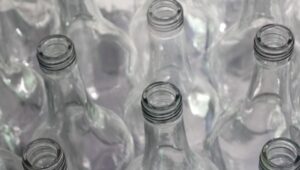Hydrogen is extracted from natural gas, but the process is very energy intensive. It also releases large amounts of carbon dioxide, a potent greenhouse gas. To address this, the natural gas industry has proposed to capture carbon dioxide. However, that won’t stop it from emitting a lot of methane. Even so, the industry promotes “blue” hydrogen as an emissions-free alternative.
Table of Contents
Green hydrogen
The world is increasingly turning to renewable sources of electricity, but the energy system needs a different kind of fuel as well. Renewable energy can make a substantial contribution to decarbonising the energy system, but it cannot meet all its needs. In particular, the transportation sector is among the biggest consumers of petroleum, and reducing its use alone isn’t enough. Hydrogen can fill the gap. It can be used as a fuel for cars and ships, and can be produced from a variety of domestic resources.
Batteries charged using renewable electricity
While battery powered boats are already in operation, it is unlikely that giant cargo vessels will ever use shore-charged batteries. Instead, an array of solutions will be needed to replace heavy fuel oil and diesel. Hydrogen is a potential solution for ships of the future because it is the cleanest fuel and produces only water when burned.
Hydrogen-powered ships require extra space, and shipping companies may have to remove cargo to make space for hydrogen. However, a study by the International Council on Clean Transportation (ICCT) showed that hydrogen fuel can be used on 43% of the world’s voyages – including those between the United States and China. Even with the space needed and a few modifications, nearly all voyages would be viable.
International co-operation on hydrogen production
The goal of international cooperation on hydrogen production for ships of the future is to develop hydrogen products that are clean and safe for future ships. This can be done by establishing unified standards. This would lower investment risks and remove incentives to bypass regulations. As a result, many countries have already begun exploring ways to cooperate in this regard.
Hydrogen is a clean energy source that can be stored in large quantities for long periods of time. This makes it a good choice for shipping and transportation in general, as it can be used for long journeys. Hydrogen can also reduce the risk of running out of fuel during an extended journey.
Read also: Reducing energy waste is the key to meeting climate goals
Costs of producing clean hydrogen
Green hydrogen has the potential to be a cost-effective alternative to fossil fuels for ships of the future. Hydrogen fuel is already used in power generation and in chemical production. Its production can be very cost-effective if industrial ports are positioned near hydrogen sources. This could increase the market penetration of hydrogen fuel in ships.
Although the technology is still in its early stages, a number of leaders are investing in research and development to reduce production costs and scale the system. While this will be challenging to achieve without government support, hydrogen may just be the answer to future shipping needs.
One of the most obvious benefits of hydrogen fuel is the reduced emissions. But there are a few drawbacks to using hydrogen as a ship fuel. The first problem is that hydrogen is less energy dense than bunker fuel. As a result, it will require more cargo space. However, the amount of space that hydrogen will take up on a cargo ship should be minimal. In fact, a study by the International Chamber of Commerce for Transportation found that hydrogen fuel could be used on 43% of current voyages, including voyages between China and the United States.












